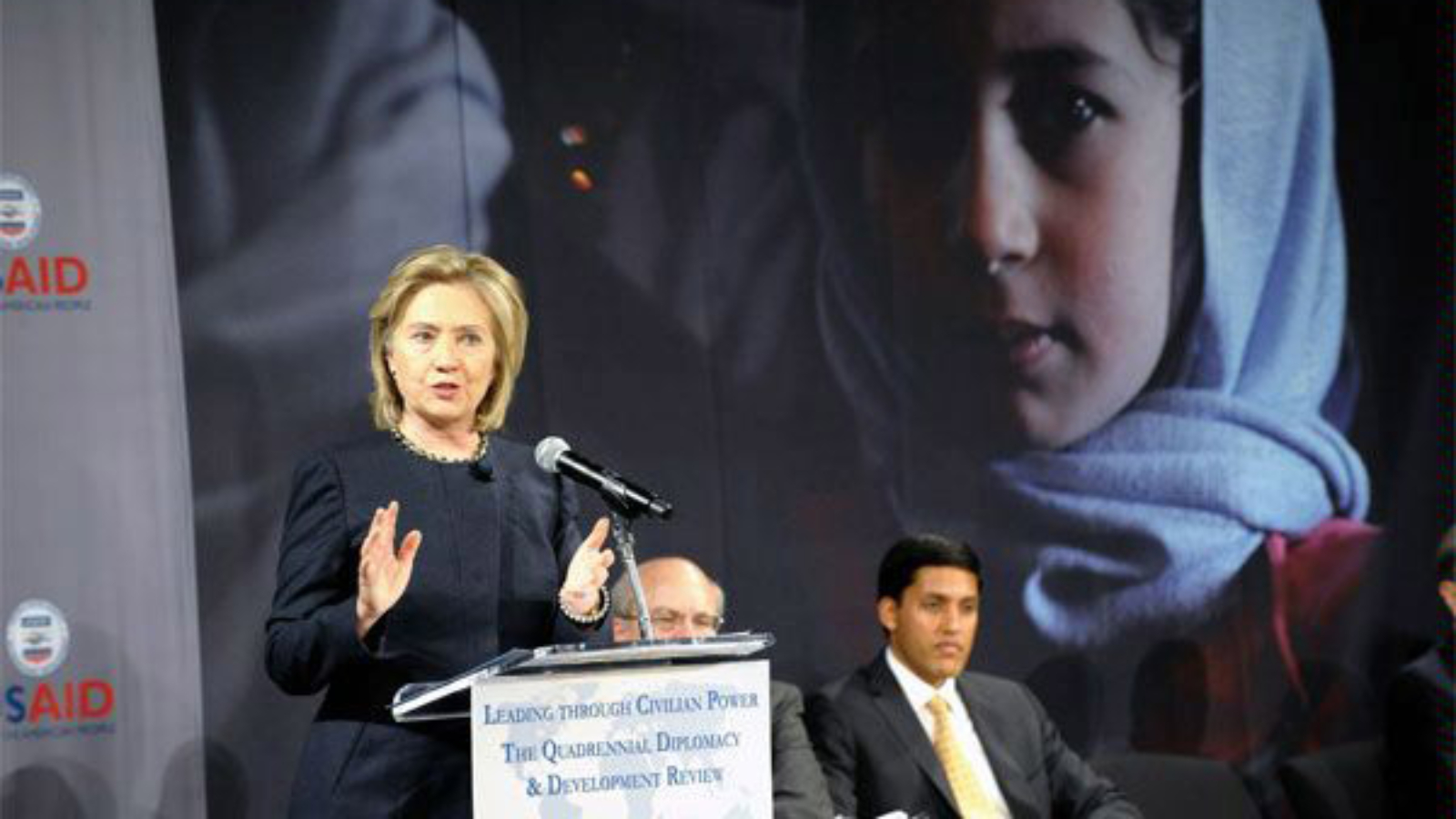By Patricia DeGennaro
Last week’s unveiling of the State Department’s first-ever comprehensive strategic review – titled the Quadrennial Diplomacy and Development Review (QDDR) – has been a long time coming. After a full year of delay, the department has finally admitted what government officials, academics, civilian workers and others have been saying for decades: the U.S. foreign policy apparatus is failing. More specifically, its civil service is diminished so extensively that the U.S. has had to scramble to keep warm bodies – often inexperienced ones, at that – in the field to cover diplomatic and development efforts.
To State’s credit, the review says all the right things about reducing reliance on contractors, empowering Chiefs of Party, working on “smart power,” and evaluating and increasing accountability standards. Yet these are hardly novel observations, especially to those of us who have worked in the field for years.
Of course, new ideas are not necessarily good ideas. But the report fails to put forward any specific strategies for achieving its objectives, even though they represent widely-held consensus positions. Worst of all, the review shies away from State’s most urgent need: increased funding from Congress, without which it will be impossible to accomplish the report’s recommendations.
The QDDR is a missed opportunity to honestly and candidly address some fundamental dilemmas. First and foremost, State – like many other federal bureaucracies – must downsize and reorganize. Doing so will require making some hard choices. The department will have to let some people go. In the words of Colin Powell’s former chief of staff, Lawrence Wilkerson, the State Department has become “a jobs program.” It employs too many Beltway veterans and political appointees, who in turn fill too many positions with friends and supporters. This kind of soft patronage will never completely disappear – nor should it. But the practice diminishes America’s ability to revolutionize its diplomatic corps and prevents talent from outside the foreign-policy establishment from making potentially valuable contributions.
Partly as a result of these self-inflicted wounds, State is frequently sidelined in the policymaking process. Consider the limited role State plays in making Afghanistan policy. The late Ambassador Richard Holbrooke (may he rest in peace) was unquestionably a brilliant diplomat. Yet it was well known that he was struggling in Afghanistan and Pakistan, partly owing to the fact that he felt it necessary to create his own little Afghanistan and Pakistan policymaking fiefdom, disconnected from the diplomatic corps. Had Secretary of State Clinton been put of charge of the Afghanistan portfolio – as she should have been – she would have been able to draw on State’s deep bench of regional experts instead of having to reinvent the wheel. Given the complexity of the region and the conflict, it’s impossible to say for sure whether Clinton would have fared better than Holbrooke – though it’s hard to imagine she would have fared any worse.
Perhaps the QDDR’s most valuable contribution is the portrait it provides of an American foreign-policy apparatus organized into strict silos, in which each agency has its own agenda and interests, its own mission and focus, and its own bureaucratic culture. The resulting competition within the system is far from healthy.
In recent years, I’ve made numerous research trips to Afghanistan, Iraq and the Balkans. While officials in Washington pay lip service to cooperation and integration, interagency coordination in the field just gets worse and worse – especially between civilian authorities and their military counterparts. This is particular true in Afghanistan, where there is no single, leading civilian agency to work in tandem with NATO and American military forces. The United Nations purports to play this role, but the reality on the ground tells us otherwise. Endless NGOs, IOs and government agencies swarm places like the Ministry for Women’s Affairs, independently implementing programs without host country input, wasting time, energy and money. The military often duplicates these efforts, sometimes employing its own civilian network, creating a chaotic patchwork of development and security efforts that stymies the herculean efforts of thousands of dedicated civilian and military professionals.
With any luck, the QDDR might represent a first step in reforming the State Department. Yet since the biggest problem is a lack of interagency coordination, a review of a single department – even one as vast and as critically important as State – will not suffice. What’s truly needed is a review of the entire foreign-policy apparatus – a report that identifies ways to reduce counterproductive competition and encourage genuine cooperation. How long, one wonders, will we have to wait for that?
